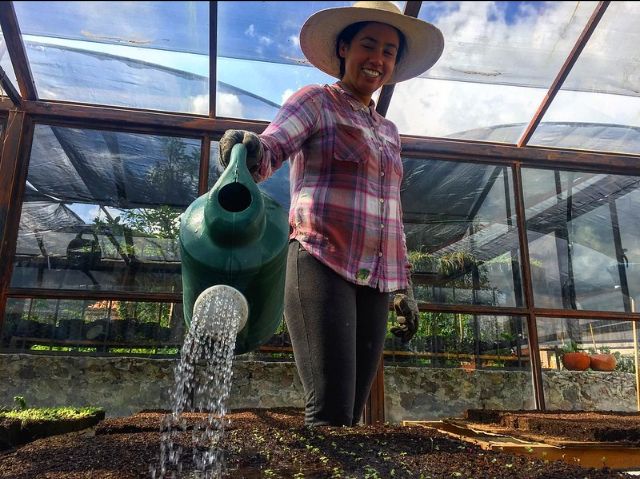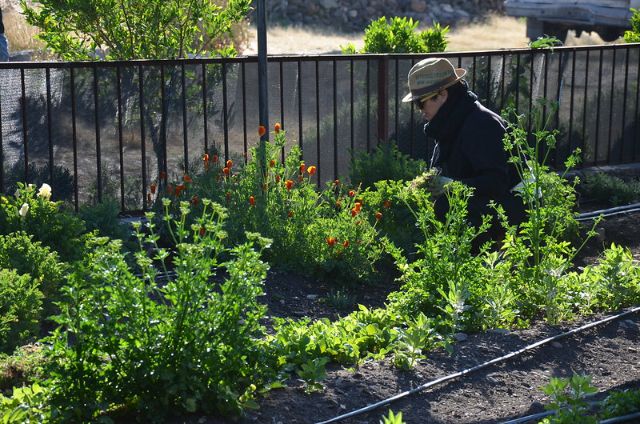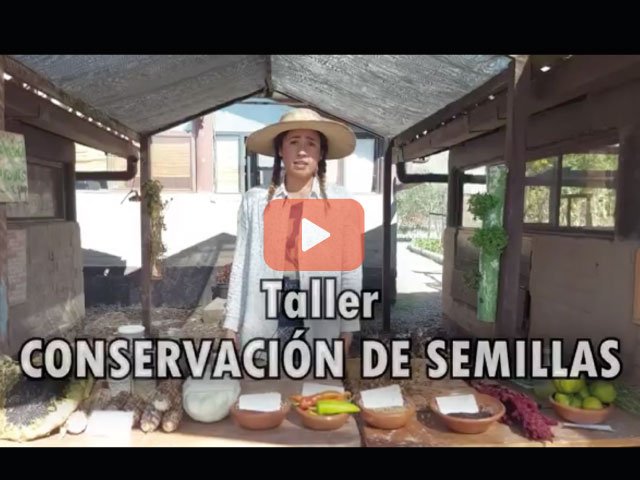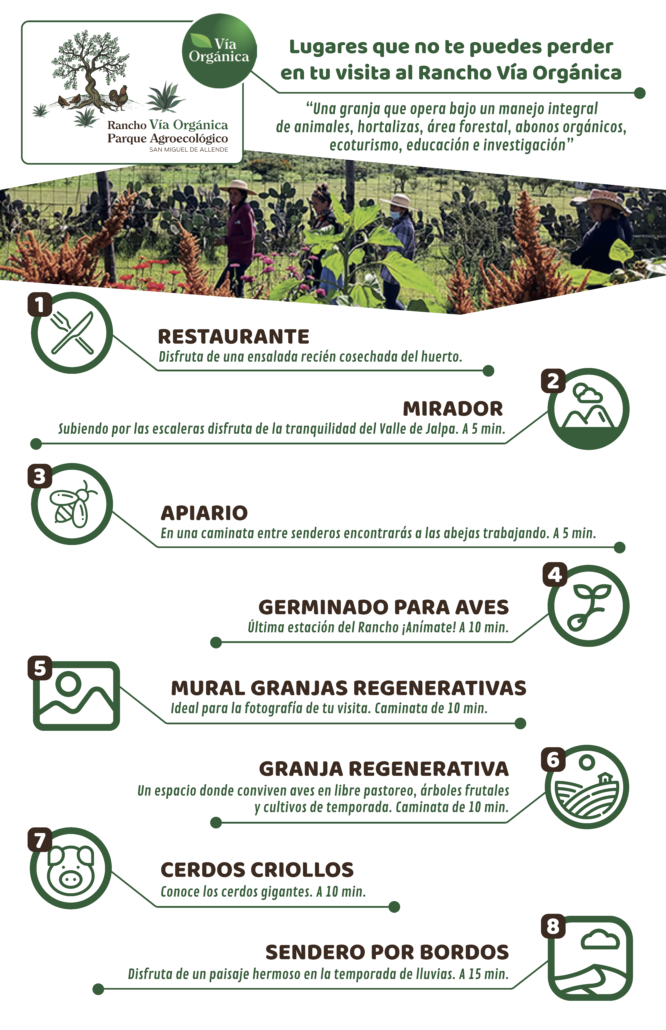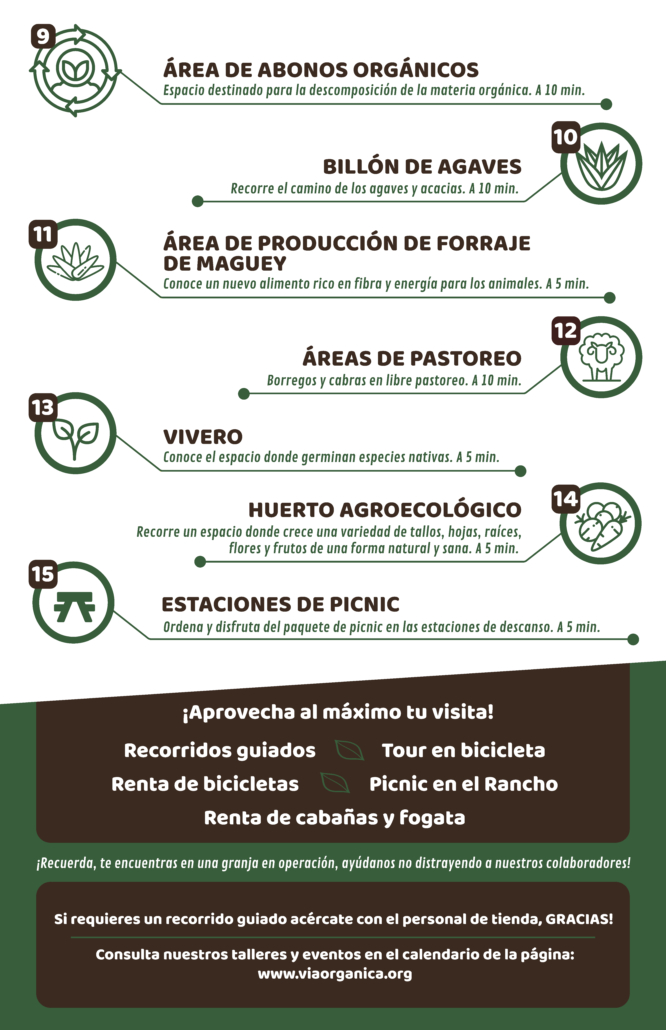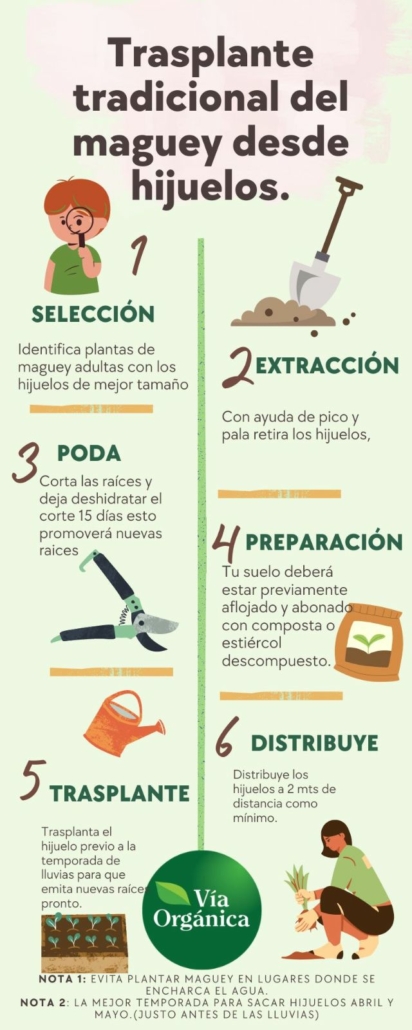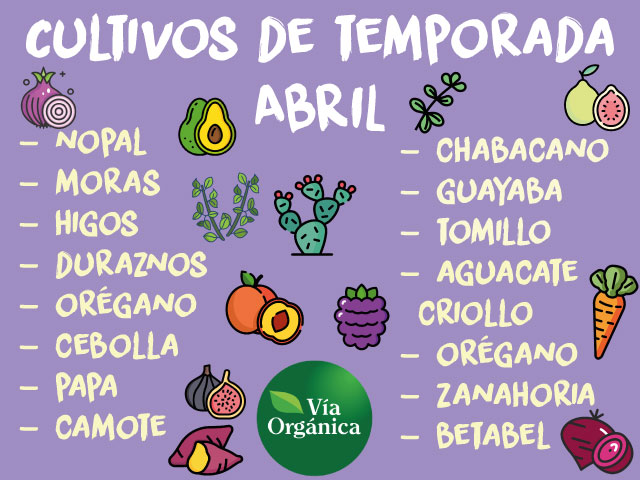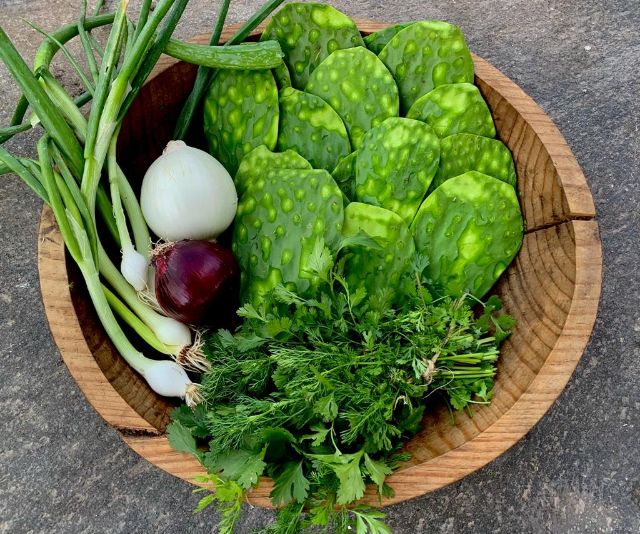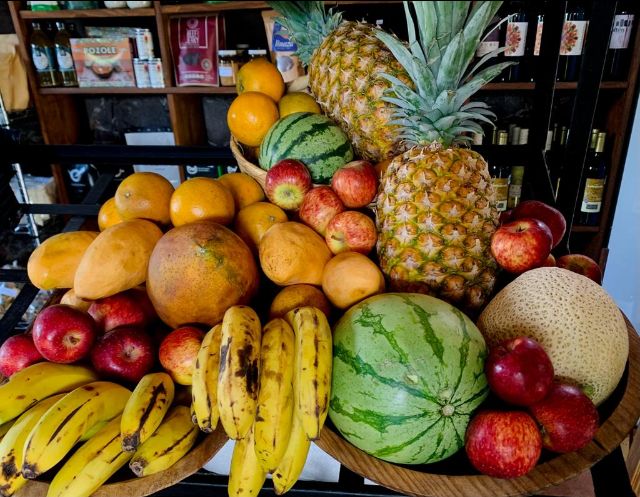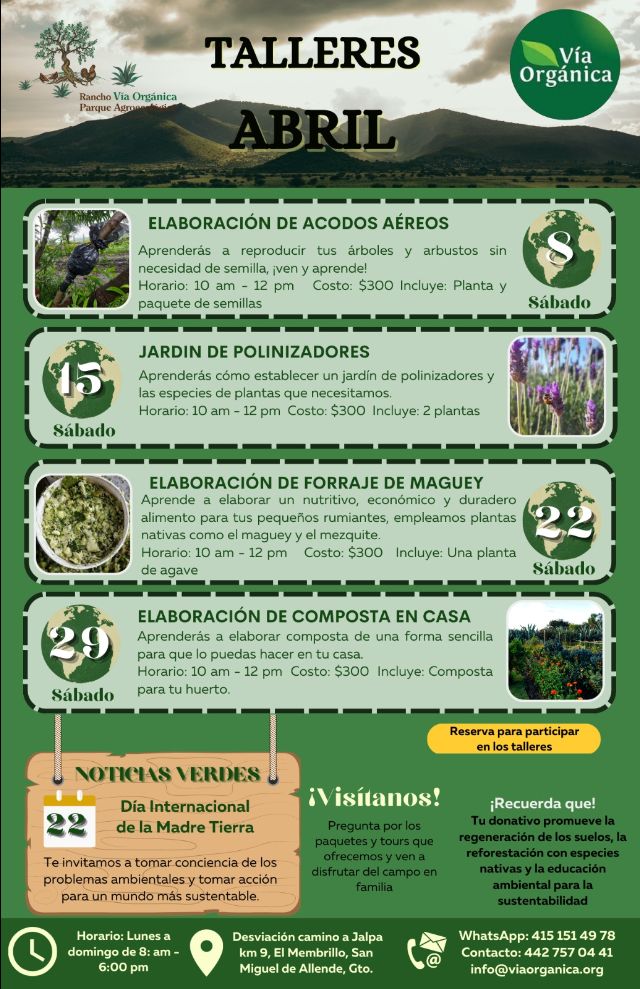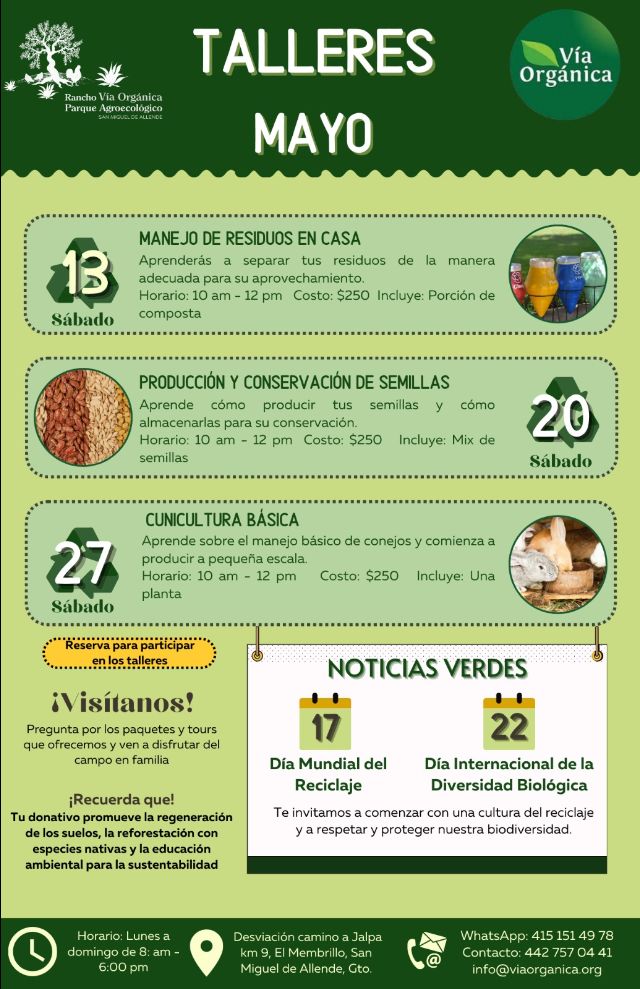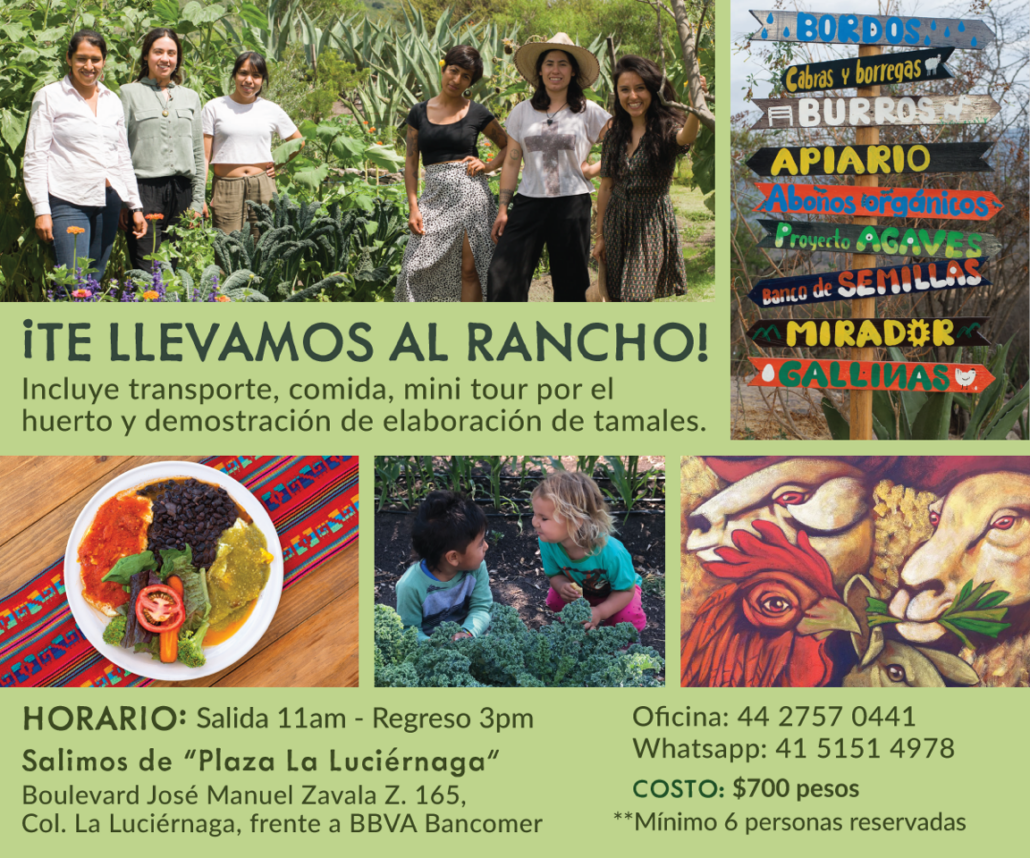Vandana Shiva en México: En defensa de nuestra biodiversidad, semillas y libertad alimentaria: Resistiendo al Imperialismo de los OGM
Durante las últimas décadas, los cultivos transgénicos se han impuesto en países de todo el mundo, promocionados como una solución a la inseguridad alimentaria y la crisis de malnutrición. Sin embargo, el hambre, las enfermedades y la malnutrición han aumentado, mientras que la biodiversidad ha disminuido y las toxinas se han propagado. El imperialismo de los OGM ha destruido las vidas y los medios de vida de los pequeños agricultores y la biodiversidad en los centros de origen. Estos centros de origen de la biodiversidad, como México para el maíz, son las cunas del suministro alimentario mundial y la protección contra plagas, desafíos climáticos, desastres naturales u otros obstáculos a la producción de alimentos.
Pero a pesar de estos fracasos, la agroindustria continúa imponiendo organismos editados genéticamente, o nuevos OGM, en centros de diversidad. Continúan cambiando su narrativa para presentar la naturaleza y la biodiversidad como productos comerciales para la comercialización y los monopolios de patentes.
En marzo de 2023, tras el Festival de Mujeres Diversas por la Diversidad en Dehradun, India, mujeres de la red co-escribieron una declaración denunciando la presión de Estados Unidos sobre el gobierno mexicano para revertir su intento de eliminar gradualmente el maíz transgénico de los alimentos y el uso de glifosato. Considerando la nueva ola de imposiciones de OGM en América Latina, Asia, Europa y otros lugares, los movimientos mexicanos, Campaña Nacional Sin Maíz No Hay País, Semillas de Vida, Vía Orgánica, junto con Naturaleza de Derechos de Argentina, y Navdanya International emitieron una nueva declaración conjunta en Defensa de la Biodiversidad y la Libertad de Semillas. La declaración abierta ha recibido ahora más de 800 firmas de todo el mundo.
Únete a la Declaración en defensa de nuestra biodiversidad, semillas y libertad alimentaria
En todo el mundo, los ciudadanos se están levantando contra la imposición no científica, antidemocrática, antiecológica de los OGM por parte de corporaciones y gobiernos. Únete a nosotros este marzo en la Ciudad de México, para seguir construyendo solidaridad y resistencia común en nombre de la Biodiversidad, la Alimentación y las Semillas Libres.
Únete a nosotros este 12-16 de marzo 2024, para una serie de eventos en la Ciudad de México para seguir construyendo una estrategia común contra la imposición de nuevos y viejos transgénicos en todo el mundo. Compartiendo experiencias, luchas y solidaridad en defensa de la Biodiversidad, la Alimentación y la Libertad de Semillas.
12 de marzo de 2024
11 a.m. to 1.30 p.m. (GMT -6)
El Ministerio de Agricultura y Desarrollo Rural de México (SADER) presenta, «En Defensa de la Soberanía Alimentaria» una conferencia magistral de la Dra. Vandana Shiva, con Víctor Suárez Carrera, Subsecretario de Autosuficiencia Alimentaria SADER.
Por invitación
14 de marzo de 2024
11:00 a.m. to 1:00 p.m. (GMT -6)
Centro Cultiva Salud presenta, «Entender el origen de los alimentos, una solución vital para tu salud y la de la Tierra.» Hacia un futuro sano y sostenible.
Una conferencia con la Dra. Vandana Shiva and Dr. Dieter le Noir
Evento transmitido en vivo desde Centro Cultiva Salud, Rancho La Paz, Valle de Bravo, México
El Evento estará disponible por un mes para participantes registrados. Cincuenta por ciento descuento para estudiantes.
Disponible en Inglés y Español.
15 de marzo de 2024
11 a.m.- 5 p.m. (GMT -6)
El Ministerio de Medio Ambiente y Recursos Naturales de México (SEMARNAT) presenta el seminario «Protección y conservación de la biodiversidad en las regiones consideradas centros de origen de especies».
Co-organizado con Navdanya International y con la participación de la Dra. Vandana Shiva, miembros de SEMARNAT y representantes de América Latina, Asia, EE. UU. y otros.
Ubicación: Ciudad de México, Sede de SEMARNAT, Polanco o en línea. Por invitación.
Este seminario analizará y discutirá estrategias para conservar y proteger los recursos naturales en países que son centros de origen y diversidad genética de especies, a través de diálogos, mesas de trabajo y discusiones para una estrategia común con actores clave del gobierno mexicano, representantes de América Latina, Asia, Estados Unidos y otros en la protección y conservación de la biodiversidad en América Latina y otras regiones.
Programa:
El evento comenzará con una ceremonia de inauguración presidida por las autoridades de instituciones mexicanas y representantes de la sociedad civil, seguida de una conferencia magistral impartida por la Dra. Vandana Shiva. Dos paneles, uno titulado «Experiencias y regulaciones para la protección en países megadiversos», seguido por el Panel 2. “Posibles mecanismos para la protección de Centros de Origen y Diversidad Genética en México”, pondrán a los participantes en diálogo con las autoridades sobre estrategias comunes. El evento concluirá con observaciones finales por parte de las autoridades de SEMARNAT.
16 de marzo de 2024
10 a.m. – 3 p.m. (GMT -6)
Defendiendo la Biodiversidad, Fortaleciendo la Libertad de Semillas – Resistiendo los OGM, la Imperialismo de Semillas y Alimentos
Un evento co-organizado por la Campaña Nacional Sin Maíz No Hay País, Regeneration International y Navdanya International
Ubicación: Cencalli, Museo de maíz y centro de la cultura alimentaria, Los Pinos, Ciudad de México (Evento presencial) Abierto al público. Detalles de registro al publico a continuación.
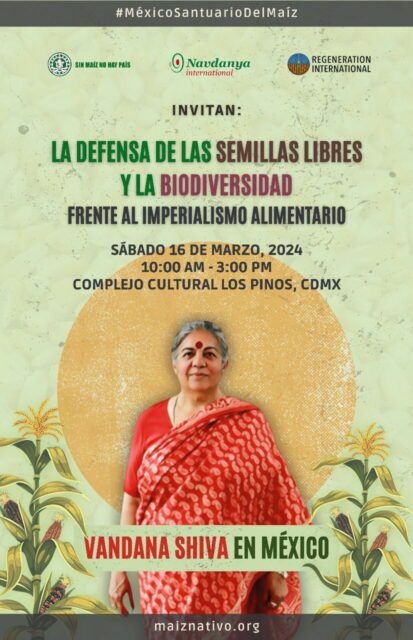 Las semillas son el primer punto en la cadena alimentaria. Constituyen nuestra herencia y albergan la futura evolución de la vida. Es nuestro deber y responsabilidad proteger nuestras semillas y heredarlas a las generaciones futuras. Hoy en día, nuestra soberanía sobre las semillas se ve amenazada por los derechos de propiedad intelectual y las nuevas tecnologías de organismos genéticamente modificados (OGM) que han transformado las semillas de un bien común compartido por los agricultores a una mercancía bajo el control y monopolio de las corporaciones agroindustriales.
Las semillas son el primer punto en la cadena alimentaria. Constituyen nuestra herencia y albergan la futura evolución de la vida. Es nuestro deber y responsabilidad proteger nuestras semillas y heredarlas a las generaciones futuras. Hoy en día, nuestra soberanía sobre las semillas se ve amenazada por los derechos de propiedad intelectual y las nuevas tecnologías de organismos genéticamente modificados (OGM) que han transformado las semillas de un bien común compartido por los agricultores a una mercancía bajo el control y monopolio de las corporaciones agroindustriales.
Siguiendo nuestra declaración conjunta en Defensa de nuestra Biodiversidad, Semillas y Libertad Alimentaria, que recibió más de 1,000 firmas, este evento discutirá cómo los centros de origen de la biodiversidad son las cunas del suministro alimentario mundial y la protección contra plagas, desafíos climáticos, desastres naturales u otros obstáculos a la producción de alimentos. Reuniendo casos de México, Argentina, Costa Rica, Bolivia, Colombia, Perú y otros para desarrollar una estrategia común contra la imposición adicional de nuevos y viejos OGM en todo el mundo.
Los OGM no pueden ser impuestos a las comunidades, violando normas de democracia y libertad. Juntos como ciudadanos globales, nos unimos para resistir el acoso de los OGM y en defensa de nuestras semillas. Uniendo fuerzas para resistir las fuerzas que amenazan la diversidad y la libertad en nuestras semillas.
Programa:
El evento contará con una Conferencia de Prensa Internacional, seguida de una conferencia magistral de la Dra. Vandana Shiva, “Defensa de la biodiversidad y la libertad de semillas contra el imperialismo alimentario”, así como paneles internacionales sobre el caso de la imposición de OGM en América Latina y estrategias comunes para resistir el imperialismo de los OGM.

